JOINT BASE BALAD, Iraq - Three skilled machinists, working in a purpose-built Mobile Parts Hospital, fabricated more than 11,000 critical replacement parts last year.
The MPH here is located in the shadow of huge relocatable maintenance structures, known as Sprungs, adjacent to the 1st Battalion, 402nd Army Field Support Brigade headquarters area. The Balad MPH is one of only three serving the Army since 2003.
So far, the three contractor-operated MPHs, including ones located at Camp Arifjan, Kuwait, and in Afghanistan, have manufactured more than 100,000 critical parts at points of need near the battle space.
The MPH team fabricates replacement parts for pieces of equipment ranging in size from M16 and M249 weapons to street sweepers, even Apache AH64D helicopters. They can manufacture standard parts and develop new and improved parts or components from computer-aided design drawings, using broken parts, drawings and verbal descriptions as a guide.
The CAD drawings are then sent back to the TACOM Life Cycle Management Command for approval. Given a green light, the team begins fabricating the custom parts and gets them in the customerAca,!a,,cs hands in a matter of days.
Aca,!A"We look for ways to take care of Soldiers and improve the parts,Aca,!A? said Timothy Gelios, MPH site leader, who currently does most of the CAD drawings.
Gelios pointed out a door latch for a mine-resistant ambush-protected Caiman vehicle. He said the original latch was rated for a door weighing between 50 to 200 pounds, but failed when the vehicles were up-armored. By using 4140 hardened steel, the latch fabricated at the MPH is capable of handling the increased weight -- meaning the vehicle and the Soldiers depending on that piece of equipment stay mission-ready.
The critical nature of seemingly small parts was recently highlighted when a unit convoyed to the MPH and basically camped out there while the team fabricated new rear door latches from hardened steel to replace the broken ones. The particular Caiman model the unit had was a slightly different design standard, so in addition to producing the replacement latches, the MPH team also had to remove the striker plates from the vehicles, drill and tap them, replace them on the vehicles, then install the new latches.
Aca,!A"They lined up the vehicles and we fixed them on the spot,Aca,!A? Gelios said.
Aca,!A"These guys can manufacture parts in a matter of minutes that normally have more than a 60- day lead time if ordered from the States,Aca,!A? said Maj. Andris Ikstrums, 1st Bn. support operations officer.
In addition to producing parts quickly, the MPH fabricates replacement components and special tools, which precludes having to replace an entire assembly. Gelios pointed out a socket for a rotor brake seal on an Apache AH-64D rear rotor that was designed and manufactured by his team to eliminate shipping the rear rotor back to the States for a depot-level rebuild. Gelios estimates a cost avoidance of $393,000 by fabricating and replacing the seal locally.
The stories of small parts failures causing huge machines to be sidelined is repeated in the case of a three-inch long emergency brake caliper for a Rough Terrain Container Handler which failed, causing the 118,000-pound piece of equipment to be down for two months. It took a couple of days for the MPH team to get the replacement part approved by TACOM, fabricated and returned to the unit.
After an aviation unit identified a need, the MPH team started manufacturing small replacement brackets for helicopter transmission stands, saving the unit the time and expense of ordering a new stand. Now, the MPH can even manufacture the whole transmission stand when needed.
Aca,!A"Usually, word spreads about everything we make,Aca,!A? said Gelios. The MPH team has learned that if one unit needs a part, the odds are pretty good that another unit will need the same part and they try to have a supply of high-demand parts on hand.
The manufacturing process is divided between parts that can be manufactured manually and those that are manufactured by a computer-controlled Mazatral 640MT PRO lathe that can accommodate stainless steel, brass, 1018 steel, 4140 hardened steel and aluminum round stock ranging from a one-half inch diameter up to a six-inch diameter.
With a waiting list of approximately 70 work orders for about 800 individual pieces, the MPH team prioritizes the work load according to how critical a part is, thus running the machines as many hours as possible. Albert Ebner, who currently programs and runs the Mazatral lathe said about the only time the machine is down is when they are performing preventive maintenance to clean the equipment and check oil; reloading round stock onto the lathe; or, reprogramming the lathe to fabricate a different part.
Kevin Lewis does most of the manual parts fabrication work, but said each man is cross-trained in all aspects of the MPH operation.
The MPH customer base is Aca,!A"every Soldier [Sailor, Marine, Airman, DOD Civilian] and
every contractor on every [base and] FOB in Iraq,Aca,!A? Gelios said. Aca,!A"We help everybody.Aca,!A?
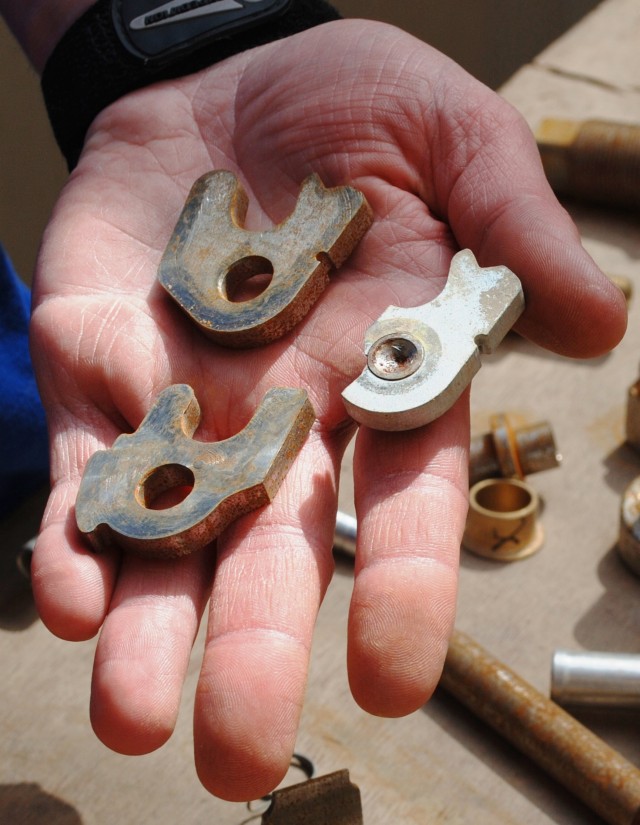
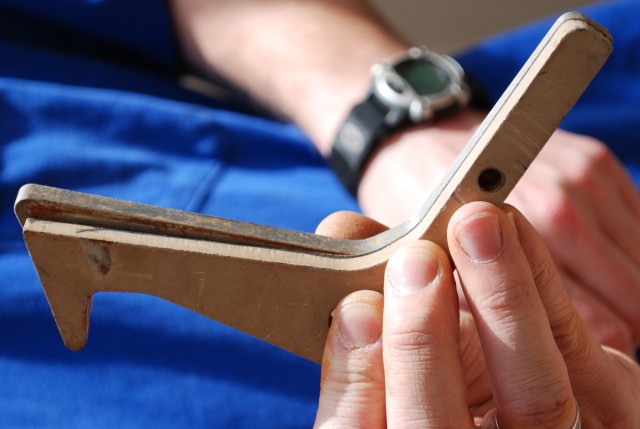
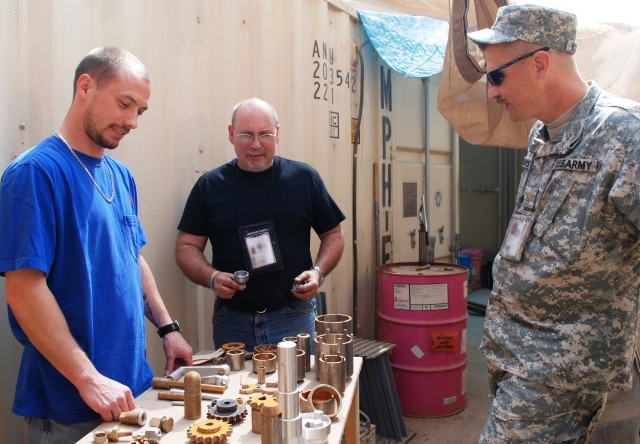
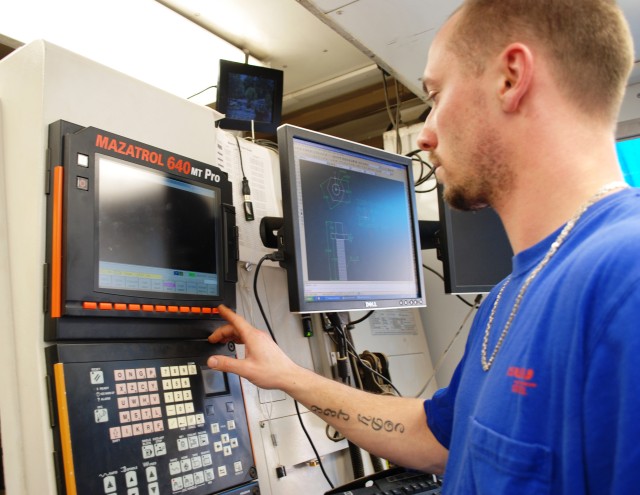
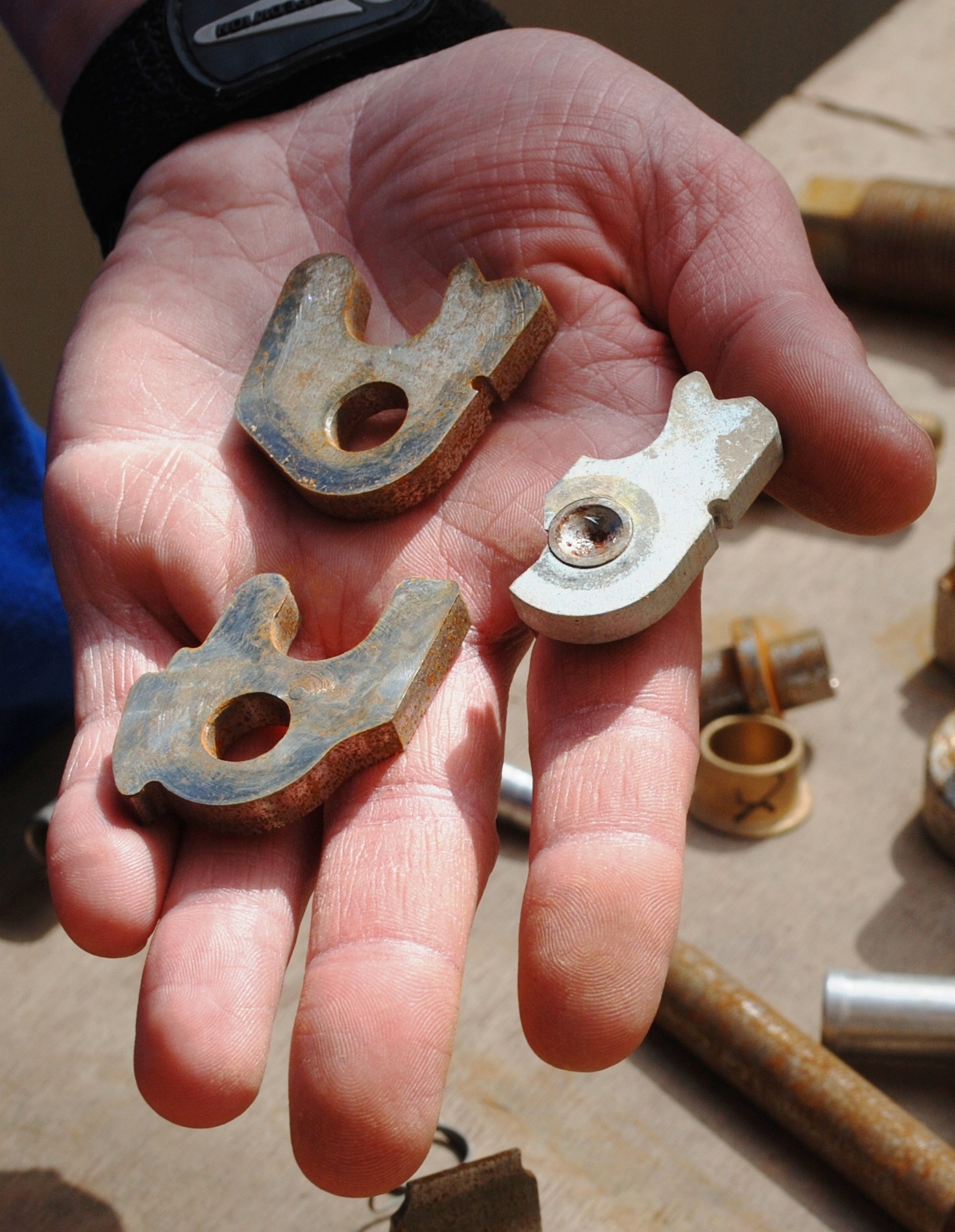
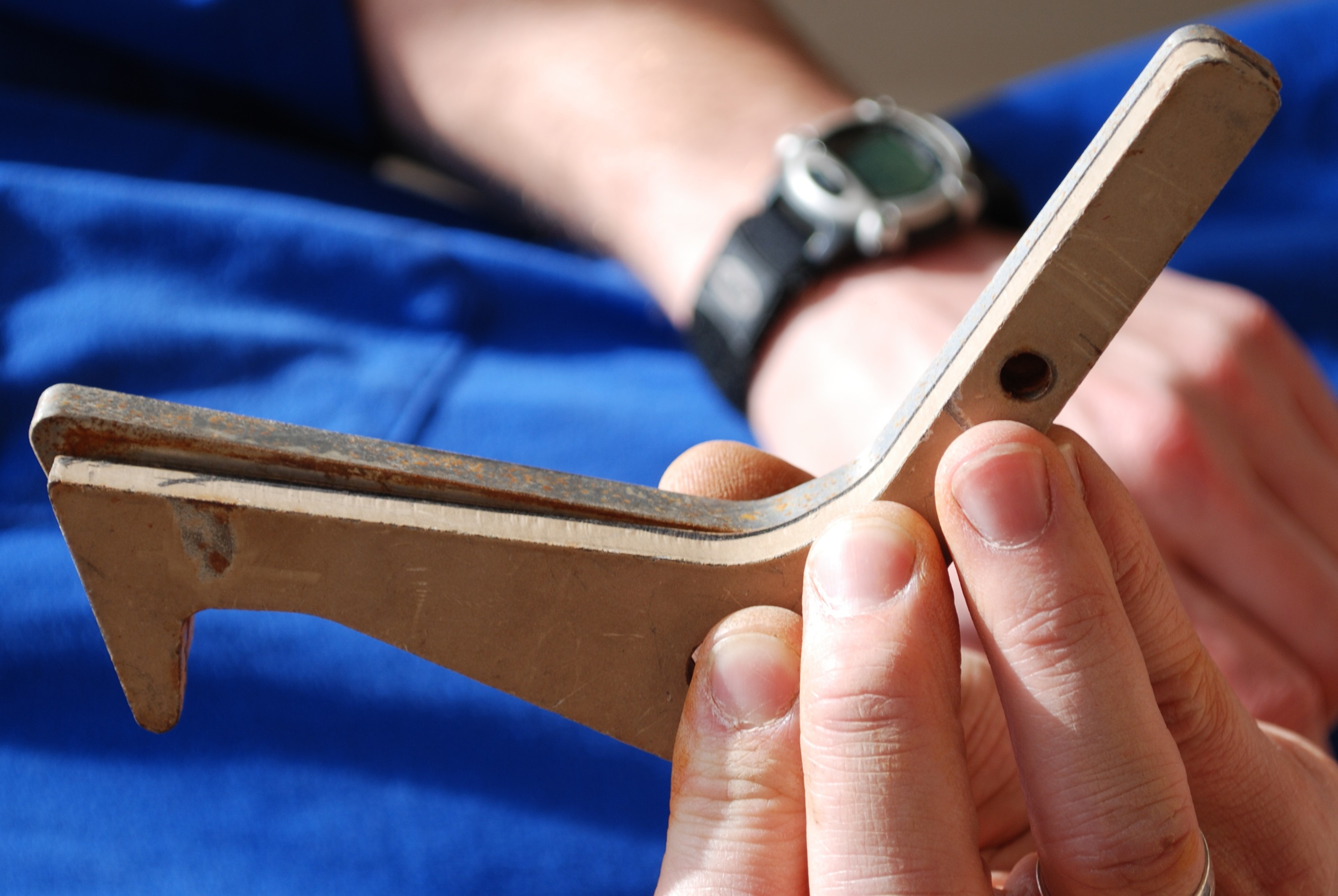


Social Sharing